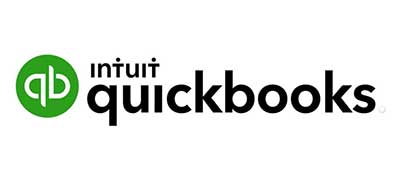As any business grows, it’s only natural that it’ll experience growing pains. By this, I mean that the capacity of the business to do what it needs to do will generally reduce over time with every new client or customer. Initially, the business founder often does everything – technical work, sales, marketing, reception, research & development… and bookkeeping. But there are only so many hours in the day, and as the business grows, it makes sense for the business owner to consider outsourcing some things to free up their time to do more important things. In this article, we’ll look at what a bookkeeper actually does, the different types of bookkeepers and some things to think about if you’re considering using one.
What does a bookkeeper actually do?
Bookkeepers keep the books. Or in other words, they periodically keep track of the financial affairs of a business. Pretty much every business these days has some sort of accounting system (click here to read about some good ones!). A large part of the role of any bookkeeper usually involves ensuring that all items showing up in the business bank accounts are accurately reflected in the business’ accounting system. By doing this, the business owner is able to produce accurate reports showing how the business is tracking over time. Accurate financial reports are important so that the business can comply with the government (e.g. ATO), as well as providing the business owner with relevant information to help them make great decisions.
Different types of bookkeepers
- Internal – once any business reaches a certain size, it’ll get a point where it’ll need to employ a dedicated bookkeeper or accountant (or maybe a team of them!) to keep on top of the books. When the volume of work becomes high enough, it’ll no longer be practical to outsource the bookkeeping role to someone outside of the organisation. This point, however, will vary from business to business and some businesses can grow to a reasonable size before they will need someone internal.
- External – for smaller businesses with less demanding financial affairs, they might not be able to justify employing someone (even part-time). This is where an external bookkeeper becomes an option. Most external bookkeepers these days can do their job offsite – they usually charge an hourly rate to do whatever needs to be done. It’s worth pointing out that bookkeepers are essentially unqualified accountants. Although there’s some great bookkeepers out there, in my experience a lot of external bookkeepers do a very sloppy job. Given their training varies and a lot of them have no one overseeing their work, they often leave (or don’t know how to deal with) underlying issues in the figures.
- Accountant – some business owners may not realise that accountants are usually quite capable of performing the bookkeeping function. Unlike external bookkeepers, a lot of accountants are trained in producing accurate financial information. Another benefit of using an accountant is that the business owner won’t need to pay the accountant to rectify an external bookkeeper’s mistakes. Rather than charging an hourly rate, some accountants provide periodic bookkeeping based on fixed price packages, which provides the business owner with peace of mind.
4 things to think about when considering using a bookkeeper
- What does your business actually need? Why are you looking to outsource your bookkeeping? I.e. lack of time, it’s too hard, would rather be fishing, etc? What do you actually need done? Is it allocation of bank feeds, issuing sales invoices, running payroll, filing paperwork? Is what you’re after beyond the scope of a pure bookkeeper? I.e. are you looking for someone to perform reception/personal assistant/quoting work as well? How often will you need help? Until you have a solid understanding of what you need, it’ll be hard to find the right person to do it for you.
- Do you have the skills/time to handle the bookkeeping yourself? Different people have vastly different capacities to do all sorts of different things. Bookkeeping is no different – some business owners are naturally great bookkeepers, and some are downright terrible. It’s ok to be a terrible bookkeeper, but if you are, it’s probably more worthwhile for you to outsource this to someone else. Also, even if you’re a good bookkeeper, is doing the bookkeeping a good use of your time?
- Do you enjoy bookkeeping? As previously mentioned, we’re all different. Some people love admin and some loathe it. If the thought of bookkeeping has you tearing your hair out, then it’s probably a good idea to outsource it. On the flipside, if you love bookkeeping and you’re doing a reasonable job of it, then why change?
- Is the cost is worth the benefit? Bookkeeping options can vary greatly in price depending on what’s needed, how often, and by whom. It may be a good idea to get some quotes on your bookkeeping options and consider whether the additional time you’ll save will be worth it. On the flipside, will the extra time you’ll now have be used well (either inside or outside the business)?
So, should you engage a bookkeeper?
You may not be shocked to know that the answer to this question is a big… it depends. It depends on your capabilities, your capacity, your love for bookwork and exactly what you need. This will vary from person to person and business to business. Any business owner considering a bookkeeper should have a good understanding of what they’re after before trying to find the right fit. You’re welcome to get in touch to discuss your individual circumstances and we’d be happy to provide our honest opinion.








